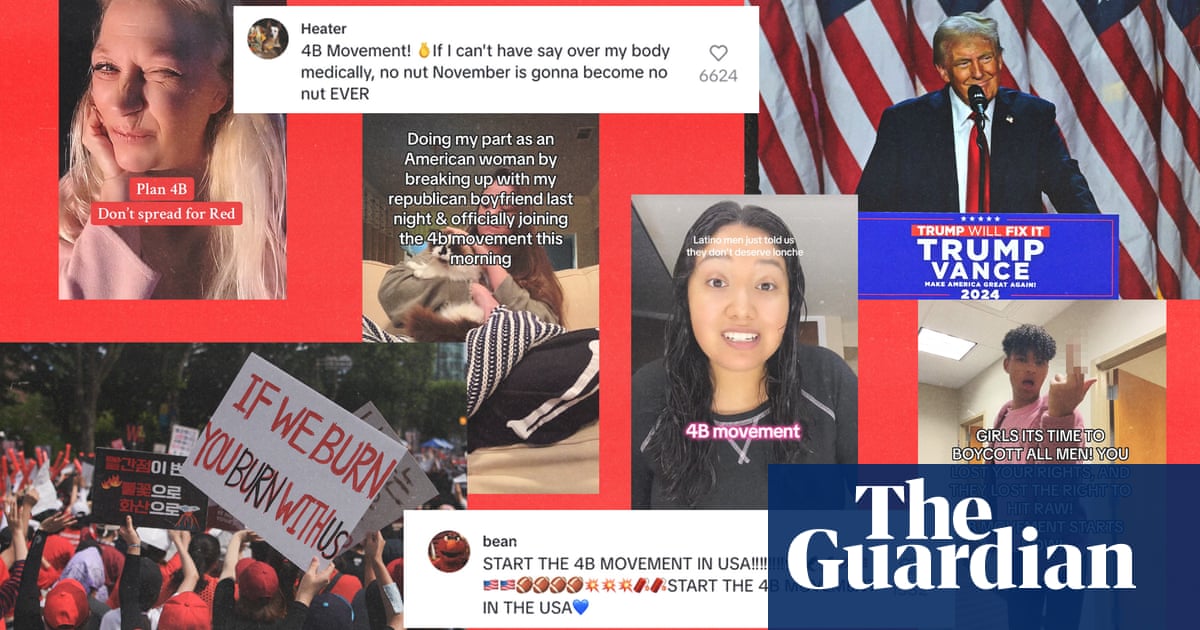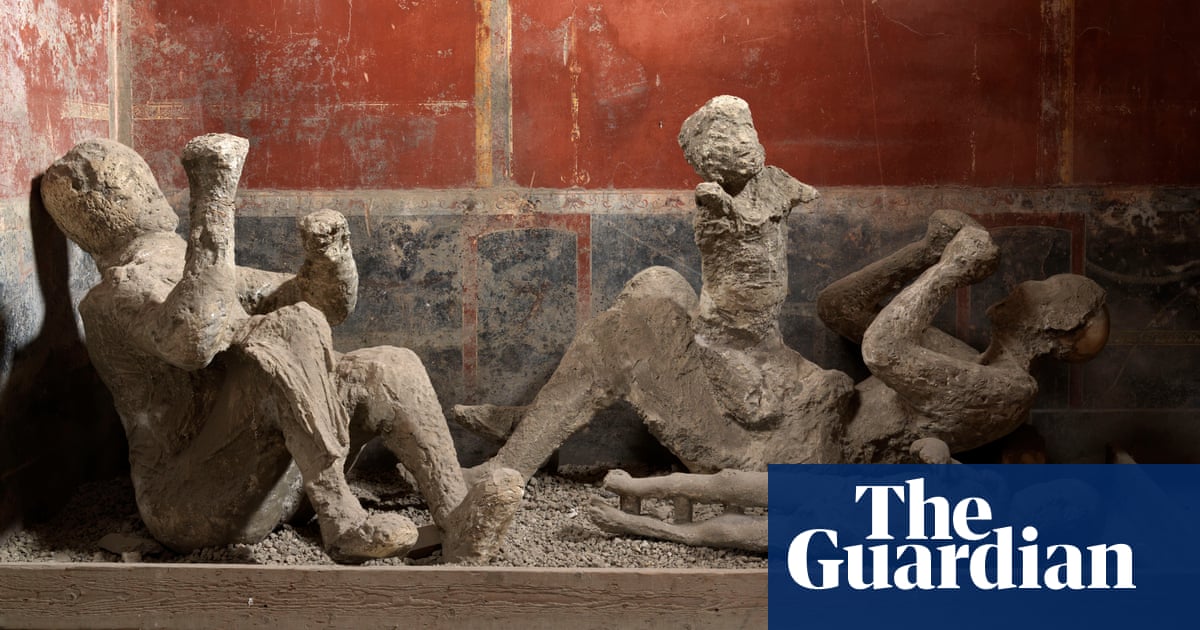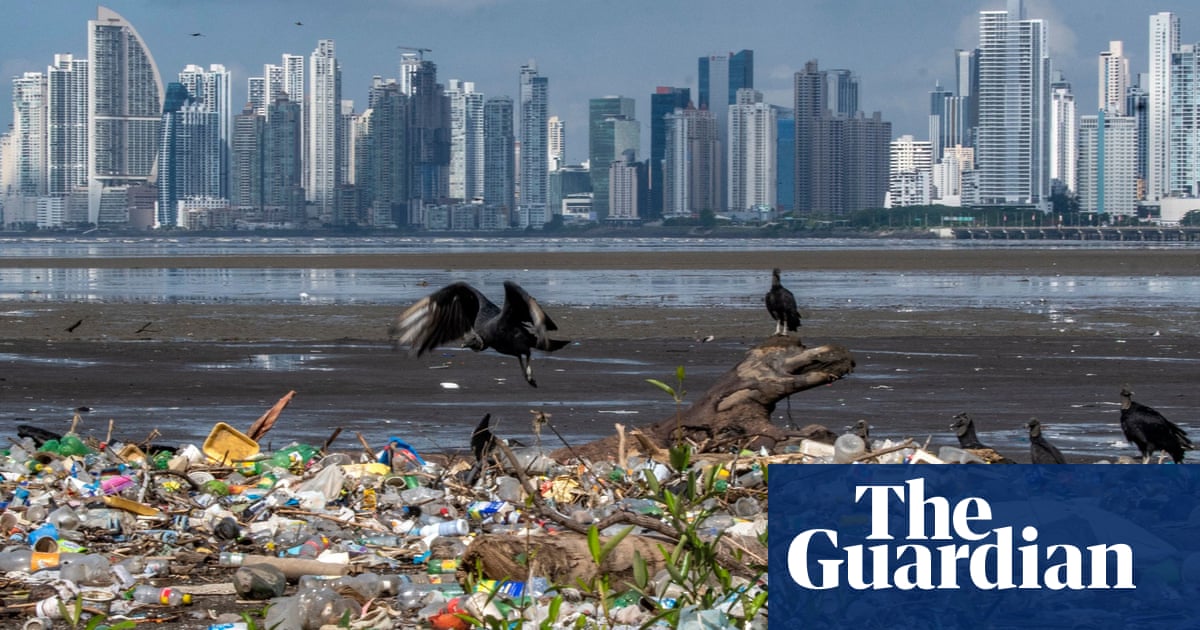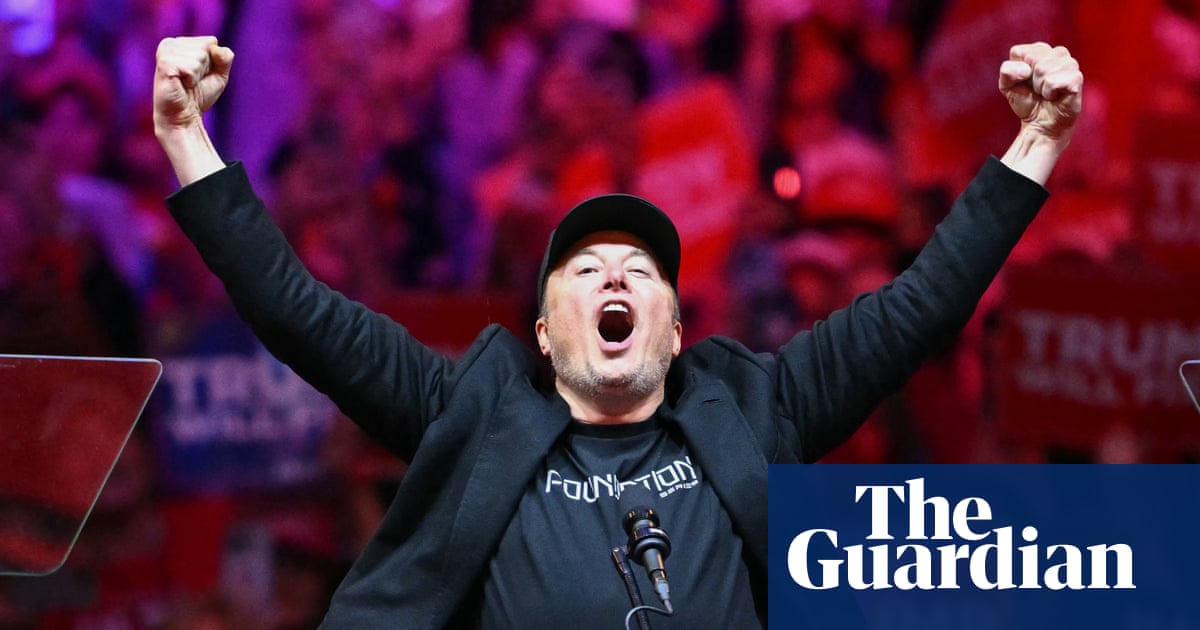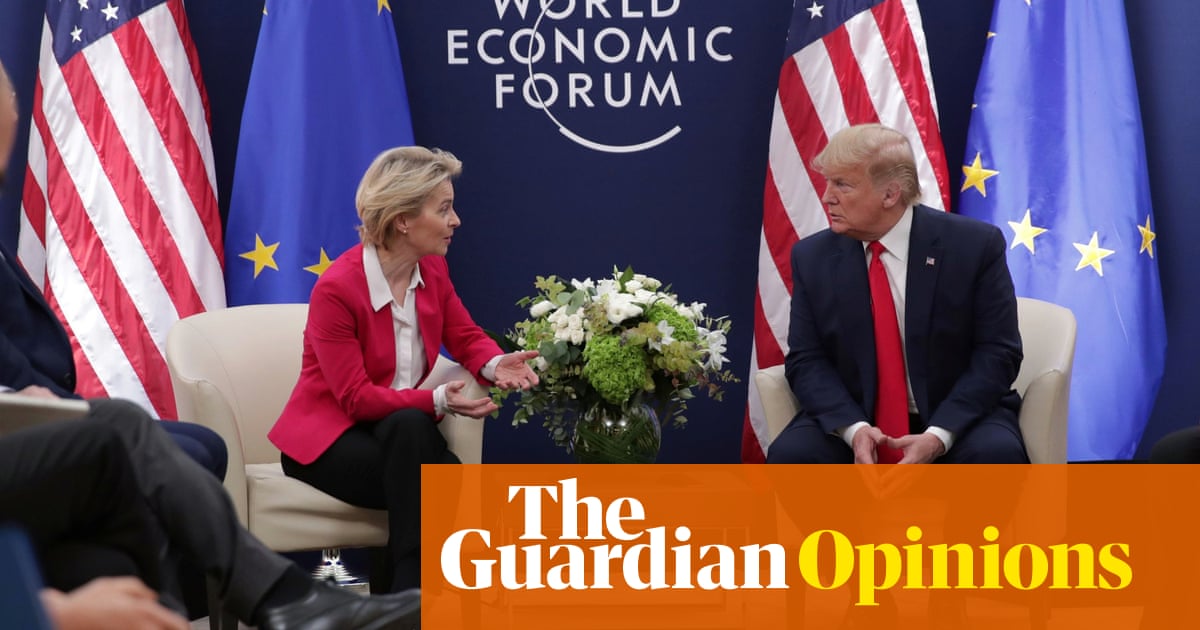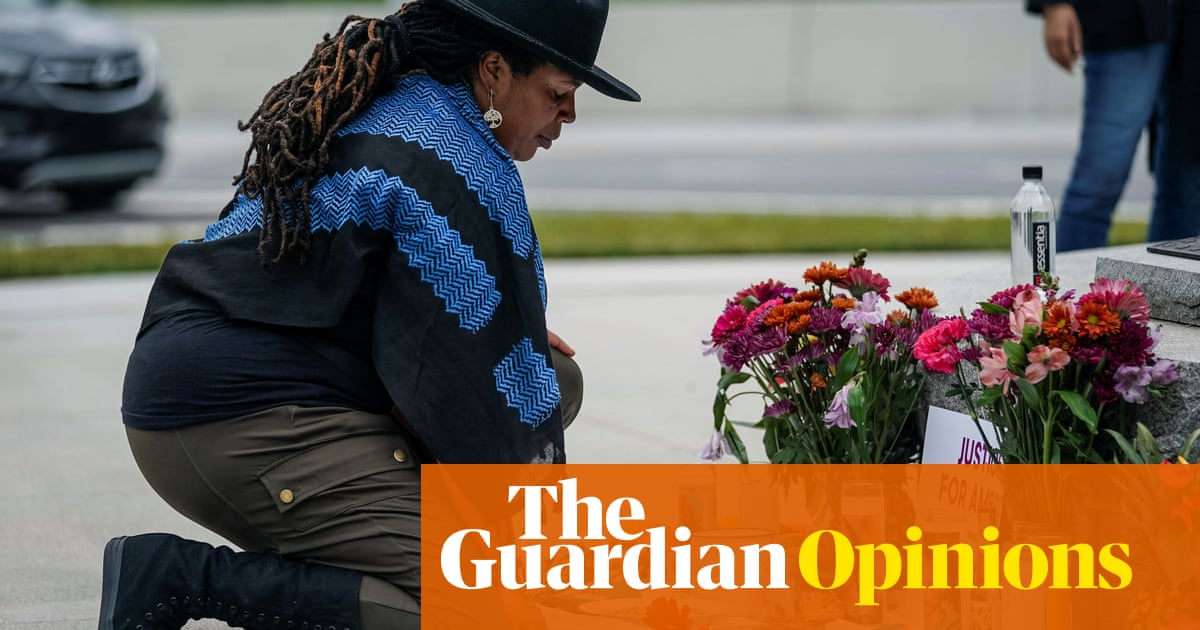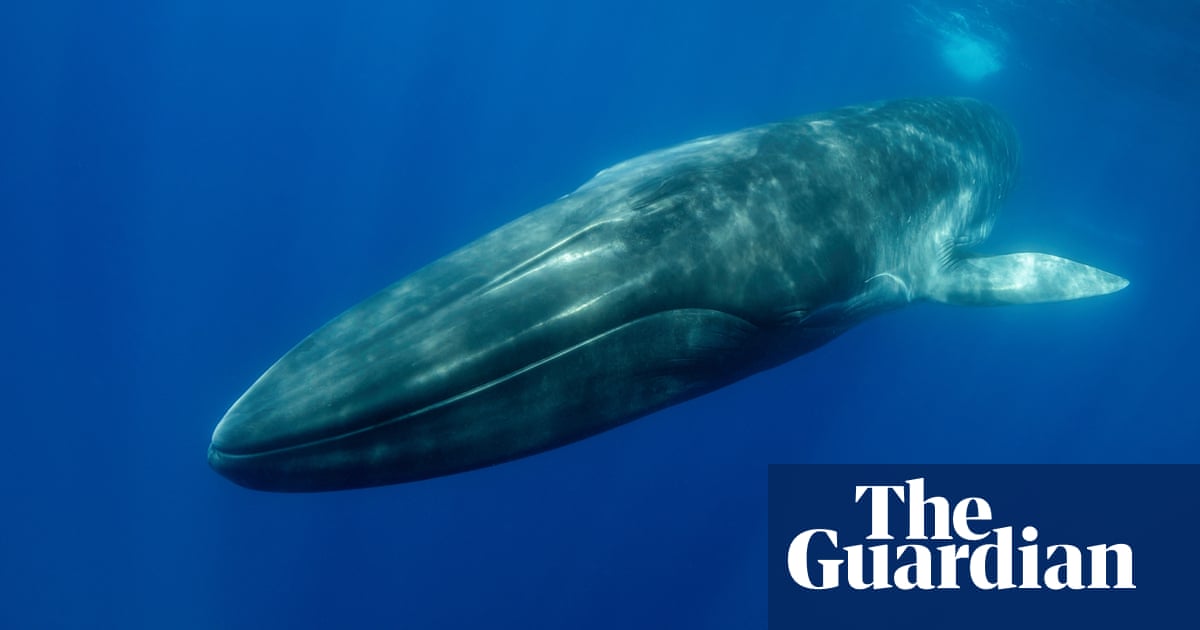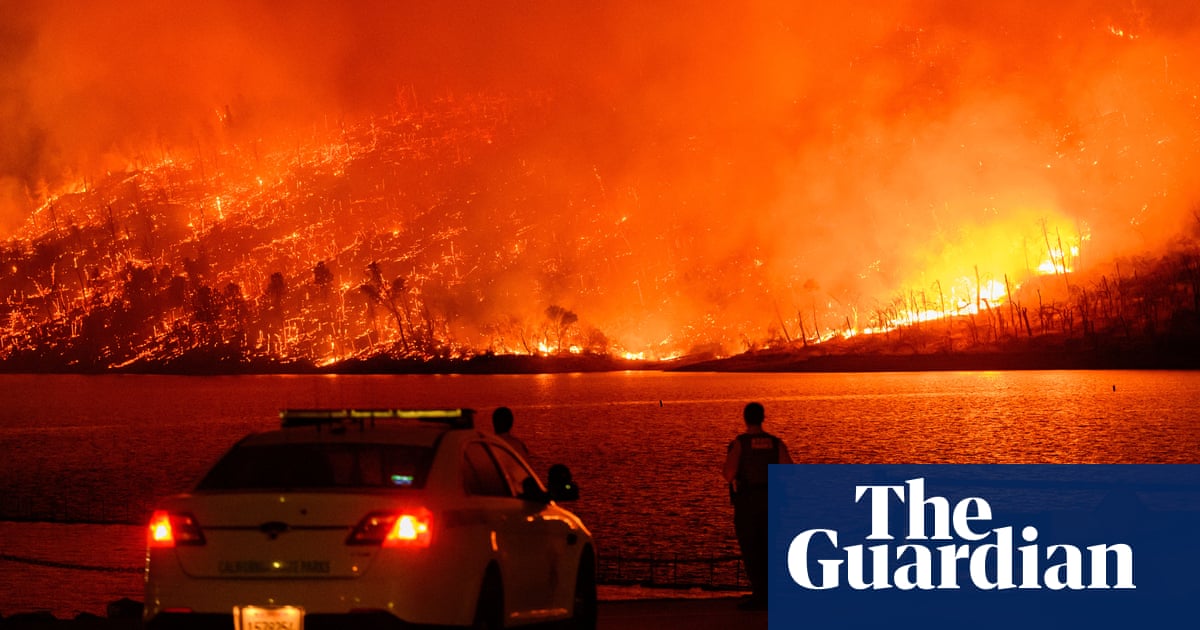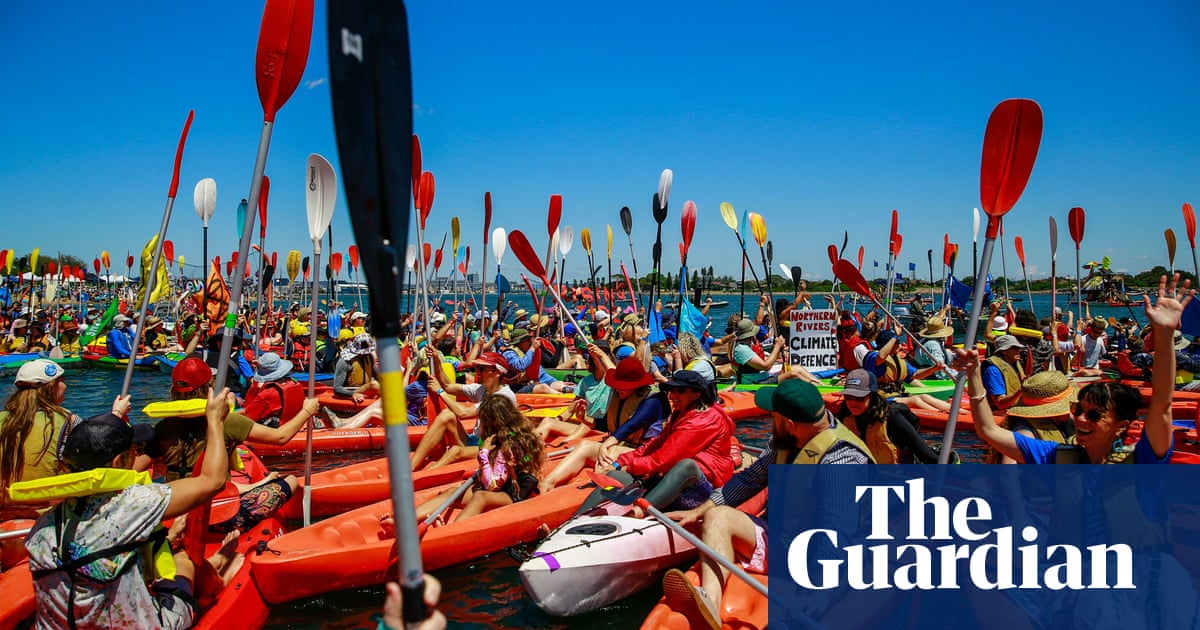McKenna, who is 24 and lives in a rural, conservative state, recently got back on dating apps after a year of finding herself. She had two first dates planned for this weekend, but after Donald Trump won the election, she cancelled both.
âItâs heartbreaking to know that in this country you only matter if youâre a straight white man,â she said. âItâs just devastating that weâre at this point. So I will not let another man touch me until I have my rights back.â
McKenna, who did not want her last name published for privacy reasons, first heard about 4B a few months ago, via a TikTok video referring to the South Korean social movement. The basic idea: women swear off heterosexual marriage, dating, sex and childbirth in protest against institutionalized misogyny and abuse. (It is called 4B in reference to these four specific no-nos.) The mostly online movement began around 2018 protests against revenge porn and grew into South Koreaâs #MeToo-esque feminist wave.
In the wake of Trumpâs victory, 4B is once again on McKennaâs mind â and sheâs not the only one.
Trumpâs embrace of manosphere figures such as Joe Rogan, the Nelk Boys and Adin Ross means he has strong support among their evangelists â mainly, young men. But for young women, the former presidentâs long history of misogyny means a vote for Trump is a vote against feminism, especially with reproductive rights as a key issue in 2024. Ahead of the US election, pundits predicted a history-making gender gap, and early exit polls support that prediction: women aged 18-29 went overwhelmingly left, while Trump picked up ground with their male counterparts compared with 2020.
With the race called, TikToks viewed hundreds of thousands of times offered one way for women to go for the jugular: 4B, specifically cutting off contact with men.
âGirls itâs time to boycott all men! You lost your rights, and they lost the right to hit raw! 4b movement starts now!â one creator wrote on TiKTok in a video viewed 3.4m times.
In another video, a woman exercises on a stair climber machine. âBuilding my dream body that no man will touch for the next 4 years,â reads the caption. The top comment on her post: âIn the club, we all celibate.â
On Wednesday, Google searches for â4Bâ spiked by 450%, with the most interest coming from Washington DC, Colorado, Vermont and Minnesota.
In South Korea, 4B began as an offshoot of national protests against the spycam epidemic, in which perpetrators filmed targets â most of whom were women â during sex or while urinating in public bathrooms without their knowledge or consent.
âThese videos were sold and exchanged by men on Discord, and women didnât know how many men had taken part, and if any of the men in their lives had,â said Min Joo Lee, an assistant professor of Asian studies at Occidental College. âThere was a general sense of, âWho can I trust? And before I regain my trust in men, I need to refrain from contact with them.ââ
The demonstrations evolved into actions against the patriarchy writ large; some activists cut their hair or refused to wear makeup as a rejection of beauty standards and the male gaze.
South Korea claims the lowest fertility rate in the world, for a number of reasons which include a high cost of living, prioritization of work over home life, and a decrease in marriage. Some companies and government agencies have offered incentives for parents: one conglomerate gives employees who have three or more children a free car, and another constructing group has spent $5m on $75,000 cash bonuses to workers who have babies.
In Busan, the countryâs second-largest city, a government-backed pilot program hosted blind dating events, offering singles $600 for each match they make. Those who married or bought houses with their partners earned greater compensation, pocketing up to $85,000.
As with #MeToo in the US, men have called 4B an overreach, and discriminatory. South Koreaâs conservative president, Yoon Suk Yeol, ran on a platform of abolishing the Ministry of Gender Equality and Family, which protects against gender-based violence and discrimination, saying feminists were to blame for the countryâs economic woes.
Haein Shim, a South Korean activist and current undergraduate researcher at Stanford Universityâs Clayman Institute for Gender Research, said in an email that women who participated in 4B protests faced cyberbullying, harassment, stalking and threats of violence. âMany of us wore masks, sunglasses, and hats to cover our faces, and it was common practice to dress differently before and after a protest to minimize being stalked.â
There were more nuanced critiques, too. âSome debated if it was a sustainable way to participate in feminism, because it was a total disconnect with men, and some people believe there have to be productive conversations among people with different world views in order for society to move forward,â Lee said. Feminists expressed concern over whether 4B âdisregarded heterosexual womenâs desires, in order to punish men who may or may not have participated in misogynyâ.
Shim, the activist, says that 4B goes beyond just boycotting men, and encourages women to find solidarity with each other. âItâs a new lifestyle focused on building safe communities, both online and in-person, and valuing our existence in this crazy world,â she said. âWhat we want is not to be labeled simply as some manâs wife or girlfriend, but to have the independence to be free from the societal expectations that often limit womenâs potential to be fully acknowledged as human beings.â
Second wave feminist groups of the 1960s and 70s such as Cell 16, which advocated celibacy and separation from men, and political lesbians, who opted out of heterosexuality, were historically deemed as extreme â or simply trendy. 4B, a more contemporary movement that mostly lives online, may seem more accessible to gen Z women. On TikTok, 4B posts play as communal and therapeutic, a way to take back control during a time when basic rights are at stake.
South Koreaâs fertility struggle caught the attention of the vehement Trump ally Elon Musk. The Tesla CEO has at least 11 living children (one son died in infancy in 2002). He describes pronatalism, the enthusiastic promotion of reproduction, as a way to save humanity from âpopulation collapseâ. When Taylor Swift came out in support of Kamala Harris this summer, he seemingly offered, creepily and unprompted, to get her pregnant. Heâs propped up South Koreaâs declining fertility rate as a case study for Americans who do not get busy making babies.
Consider Musk an archetypical 4B foe. Heâs far from the only one. Far-right figures such as Nick Fuentes, a white supremacist who has praised Hitler and once described his âideal wifeâ as 16 years old, celebrated on X after Trumpâs win, tweeting, âIâd just like to take the opportunity to thank men for saving this country from stupid bitches who wanted to destroy the world to keep abortion,â and, âYour body, my choice. Forever.â That sort of violent rhetoric, which is spreading among Trumpâs far-right supporters, will not exactly convince the majority of young American women they should be dating at the moment.
For now, McKenna isnât sure exactly what 4B will look like to her in the electionâs aftermath. She wants to do more research on the community. Sheâs not swearing off sex for ever, or taking a vow of celibacy. âNow when I go out with my girlfriends meeting people, instead of mingling to find a date, Iâm going to mingle to get change,â she said. âWhen men come on to me, Iâm just gonna push back.â
